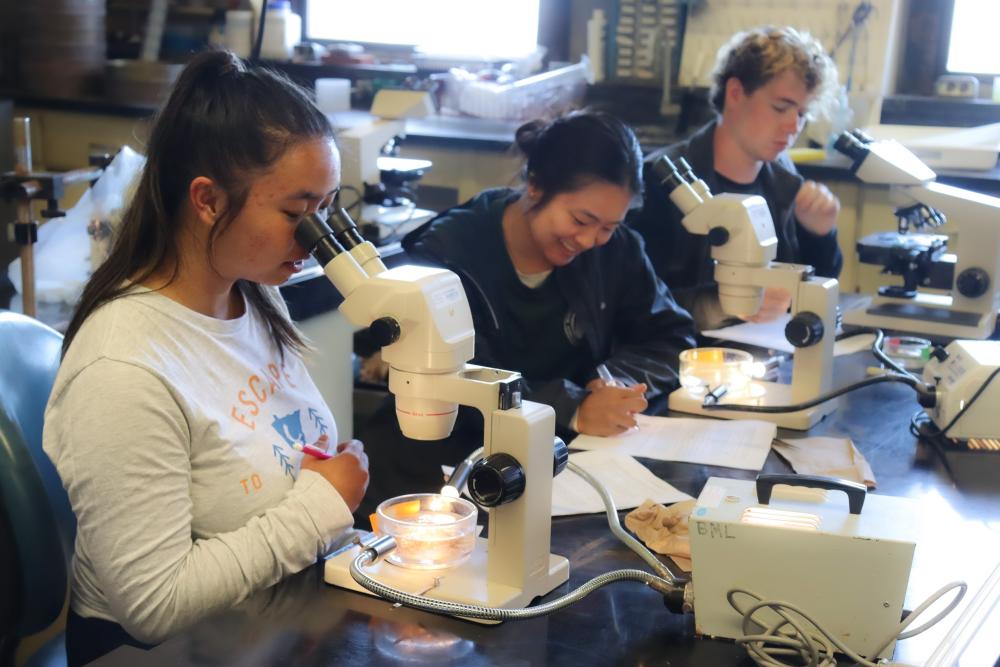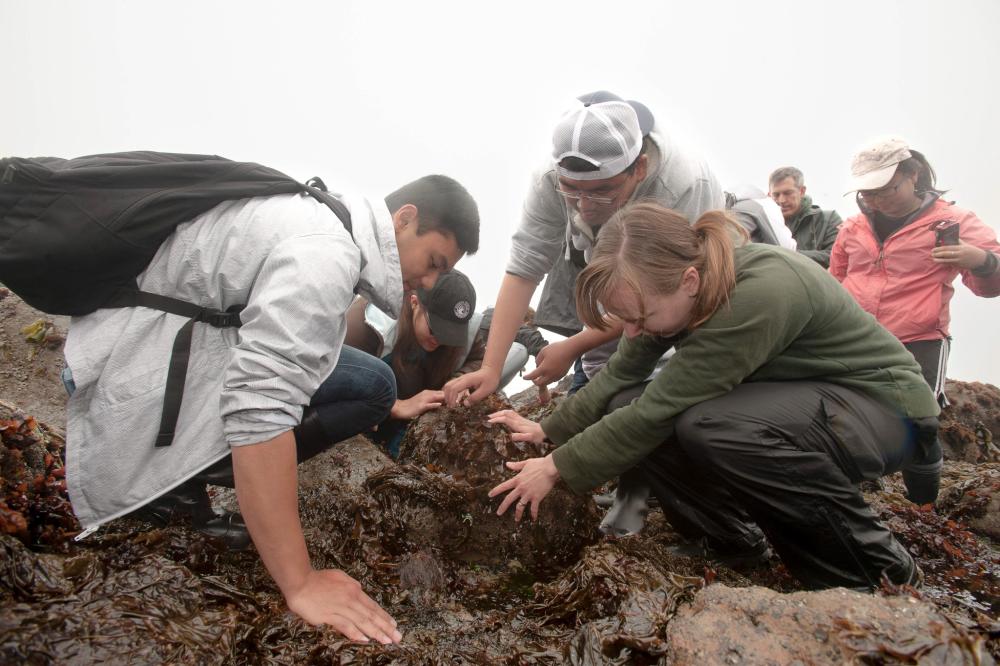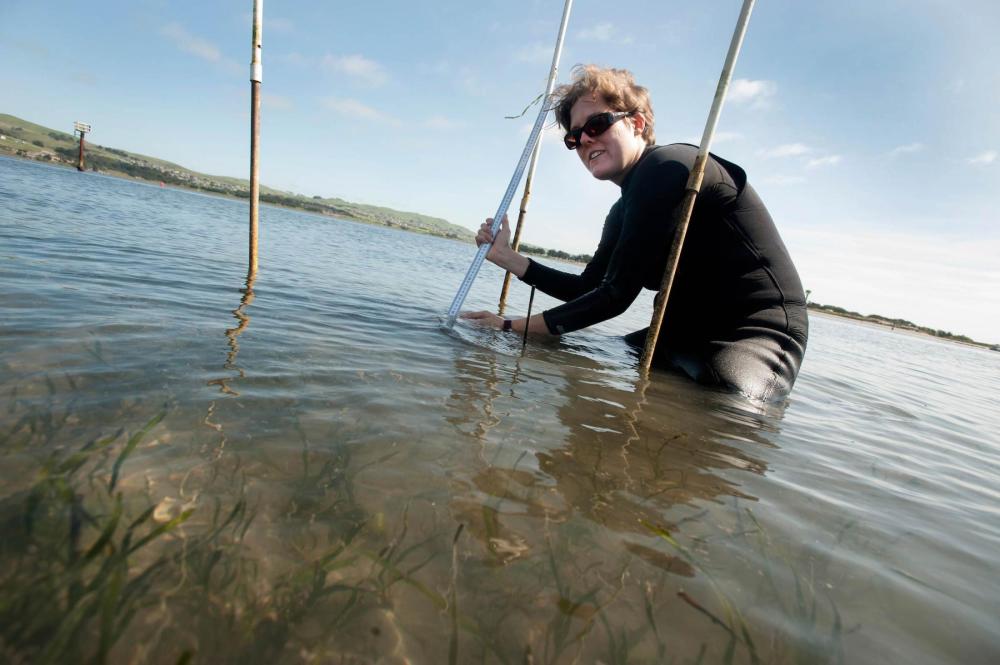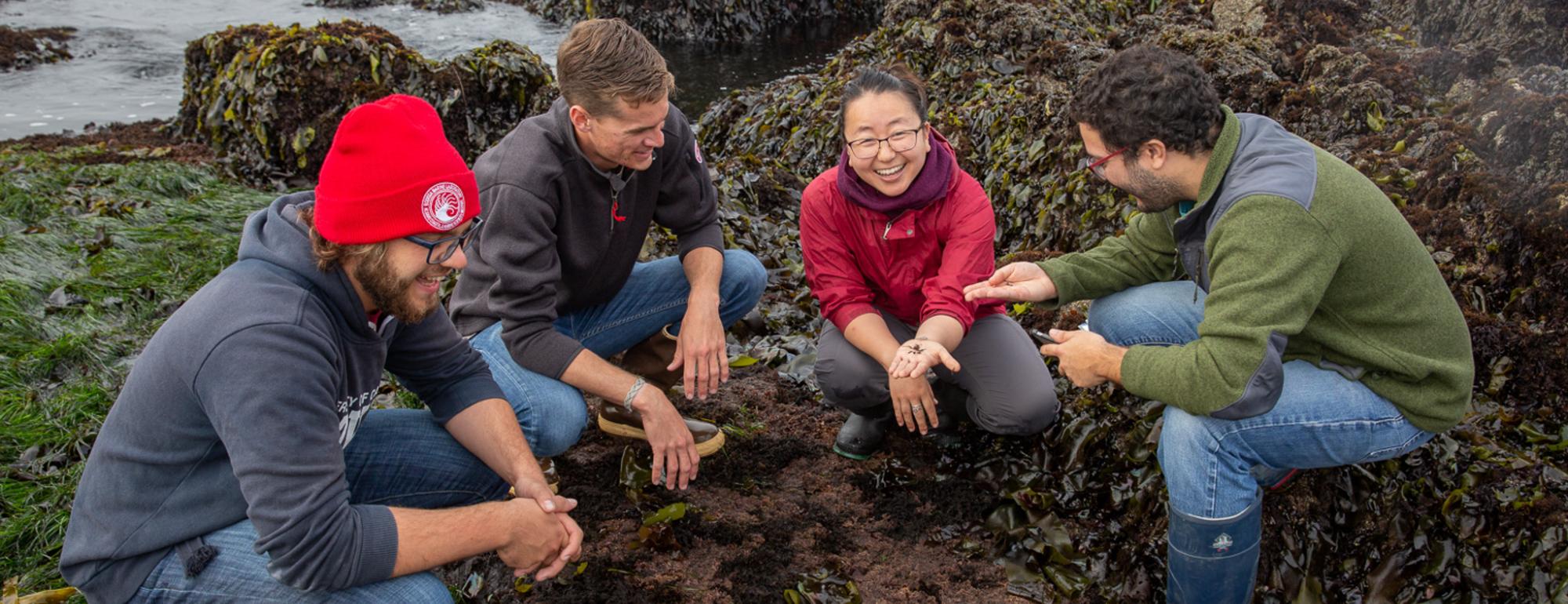Shaping the Future of Our Coasts and Oceans
The future of our coastal oceans relies on innovative solutions and the next generation of passionate, informed thinkers. At the Coastal and Marine Sciences Institute (CMSI), we're committed to advancing education and research that fosters creative, multidisciplinary approaches to marine science and policy. By connecting cutting-edge science with policy and engaging diverse voices, we help shape a sustainable future for our coastal environments.

Undergraduate Majors & Minors
Explore the wonders of the ocean through the Marine and Coastal Science major or dive into a minor in Oceanography. These programs offer a strong foundation in marine and coastal science, blending coursework with hands-on research opportunities.

Undergraduate Experiences on the Coast
Take your learning beyond the classroom at Bodega Marine Laboratory. Located on the stunning Bodega Marine Reserve, BML offers immersive summer sessions and fall quarter classes where students engage in field-based research and hands-on exploration.

Graduate Student Opportunities
Graduate students from a variety of UC Davis Graduate Groups can engage in interdisciplinary research through the Coastal and Marine Sciences Institute. With mentorship from faculty on campus and at the Bodega Marine Laboratory, students gain the expertise and support needed to excel. Bilinski Fellowships at BML further enhance opportunities for PhD students, funding innovative, cross-disciplinary projects that advance marine science.

